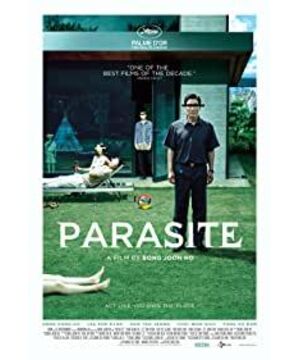Parasites were criticized, firstly, because they were clearly photographed, and everyone felt they understood them; secondly, because the metaphor of parasites was too easy to understand, especially for people from a culture where simple analogies replaced complex essences with liveliness and liveliness, especially good Understand.
There is a logic behind it. The film is the story, the central idea. I see it clearly, or I have completely accepted your sound, light and shadow code and translated it correctly, you are not profound.
Can we watch movies to pursue something other than story and theme that also belongs to movies?
Such as scene scheduling, such as composition, such as sound, such as lighting and shadows.
Like the stairs in Parasite. From the semi-underground to the ground, from the living room where strangers are received to the bedroom of the young lady who has entered the house; from the basement to the basement below the basement, from the wealthy area to the submerged cockroach gathering place.
Beyond the stairs, there are more prominent windows, doors, and sofas. How the building differentiates the space, demarcates the hierarchy, and isolates the joys and sorrows of human beings.
Even going back to the story, it's not just class confrontation. Class is a reality that has been translated once, a projection of emotions, a classification after a definition standard, and it is not essential.
Parasite, talking about parasitic upstream and dependent downstream at the same time. Not just parasitism, but coexistence. There is a dissatisfied opinion that Feng Junhao is speaking for the rich or the poor. This question is easy to answer. As a director, as a god in the universe in the play, he does not favor any one person. All can be deprived, all can die.
How should people live in a world where they are parasitic on each other. It is hypocrisy or sincerity; it is good or evil. Whether it is clear and consistent, or being compelled by the situation, is the question.
Hypocrisy is obviously the common answer for parasites. Going away from President Park's family, Ki-taek's family, and even the housekeeper and his wife, take Min Hyuk who appeared at the beginning as an example. Looking back, he took a floating transport stone in exchange for Ki-taek to help him take care of his student and girlfriend. In the words of the hammer runner-up mother, it's better to bring something to eat. Obviously, buying food will probably cost a little more. Why has this character disappeared since then? The answer is the moment the stone floats. Of course, Ki-taek was not polite from the beginning, and he flirted with his friend's girlfriend in the first lesson.
There is no redemption. All were avenged by fate. Even though he escaped the punishment of the justice of the world, he was imprisoned underground. Even if Ki-taek really plans to buy that building, according to Bong Joon-ho, based on the average income of Koreans, it will take five hundred years to not eat or drink. Between reality and fantasy, does Keizer really want to rescue his father, or is it just a rationalized deception to the audience and himself.
You see, this is less of a fable, and more of a religious tone. Another big flood.
View more about Parasite reviews










